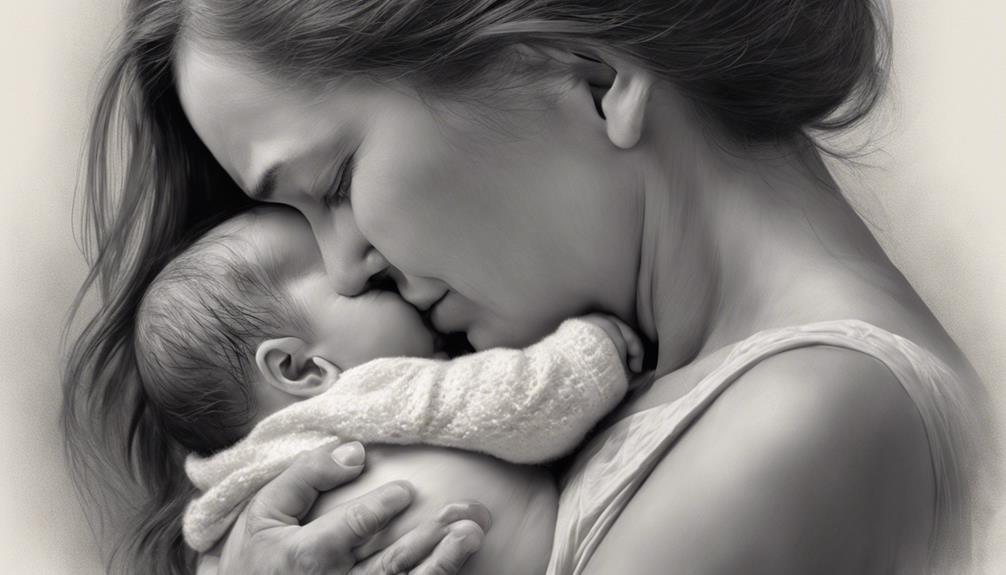As pet parents, we often wonder about the ins and outs of caring for our furry companions. Did you know that newborn puppies can poop up to 12 times a day? Understanding their bathroom habits is important for their health and well-being.
But how often should you expect your little pup to do their business? Let's explore the frequency of newborn puppy bowel movements and discover essential tips for managing and monitoring their poop to guarantee a happy and healthy start in life.
Key Takeaways
- Newborn puppies poop multiple times daily, with the first poop being meconium.
- Poop color changes with solid food to light brown or dark yellow.
- Puppies tend to poop after meals, establishing a routine.
- Monitoring poop consistency and frequency is crucial for detecting health issues.
Newborn Puppy Pooping Frequency
Newborn puppies typically have several bowel movements a day, with their pooping frequency decreasing as they age. When a puppy is first born, their initial poop is called meconium. This meconium is a dark green or black, sticky substance that helps clear their intestines of any waste products from the womb. As the puppy grows and starts to shift to solid food, their stool will gradually change in color and consistency. Normal poop for a newborn puppy should be light brown or dark yellow.
Understanding a puppy's pooping habits is vital for pet parents. Puppies tend to poop about 30 minutes after each feeding until they're approximately 4 months old. This frequent pooping is a natural part of their digestive system adjusting to the nutrients they're consuming. As pet parents, it's essential to monitor your puppy's pooping habits to make sure they're healthy and adjusting well to their feeding schedule and solid food shift.
Understanding Puppy Bathroom Habits

Understanding puppy bathroom habits involves closely monitoring their elimination patterns and recognizing signs of digestive health. Newborn puppies typically poop multiple times a day, a frequency that gradually decreases as they mature.
It's vital to note that puppies often start pooping around 30 minutes after meals, and this behavior may persist until they reach about 4 months of age. The initial poop of a newborn puppy is meconium, characterized by its black or dark green color and sticky texture.
As puppies shift to solid foods, their poop should change towards a light brown or dark yellow hue. Monitoring the color, consistency, and frequency of your pup's poop is critical for gauging their digestive health.
Potty-training newborn puppies demands patience, consistency, and a keen eye on their bathroom habits. By understanding and observing these patterns, pet parents can make sure their pups are on the right track towards healthy elimination habits.
Tips for Managing Puppy Poop
To effectively manage your puppy's poop, establishing a consistent feeding schedule is important for regulating their bathroom habits throughout the day. By feeding your puppy at the same times each day, you can anticipate when they'll likely need to go potty, making it easier to prevent accidents indoors.
Monitoring changes in your puppy's poop, such as color, consistency, and frequency, is critical for early detection of any potential health issues. Encouraging proper elimination habits by taking your puppy outside after meals and playtime can help them learn where it's appropriate to go.
Consider incorporating fiber-rich foods like pumpkin into their diet to regulate digestion and maintain healthy puppy poop. If you notice any abnormalities in your puppy's poop that persist beyond two days, don't hesitate to consult a veterinarian for proper evaluation and treatment.
Monitoring Newborn Puppy Poop

Monitoring the consistency and frequency of a newborn puppy's poop is essential for early detection of potential health concerns. As pet parents, staying vigilant about changes in your puppy's poop can help identify issues like diarrhea or constipation promptly. Below is a helpful table to guide you in monitoring your newborn puppy's poop:
| Aspect | Normal Characteristics | When to Consult a Veterinarian |
|---|---|---|
| Poop Frequency | Several times a day initially, decreasing with age | If there is a sudden change in frequency |
| Poop Color | Meconium: black or dark green and sticky | If poop color remains abnormal after transitioning to solid food |
| Poop Consistency | Soft and malleable for newborns, solidifying with age | If poop consistency is consistently watery or hard |
| Health Issues | Monitor for signs of diarrhea or constipation | If your puppy shows signs of discomfort or distress |
Establishing Puppy Poop Routine
Establishing a consistent routine for newborn puppies' pooping habits is important for their overall health and well-being. When it comes to creating a puppy poop routine, here are some essential tips to contemplate:
- Follow a Feeding Schedule: Implementing a regular feeding schedule can help establish a routine for puppies to poop after meals, making it easier to predict when they may need to go.
- Monitor for Meconium: Be mindful that puppies may produce meconium, a dark green or black sticky substance, as their first poop. Monitoring this can help guarantee they're passing waste properly.
- Assist with House-training: Providing a clean and comfortable area for puppies to eliminate can aid in house-training efforts. By guiding them to the designated spot consistently, you can help reinforce good habits early on.
Frequently Asked Questions
How Often Do Newborn Puppies Need to Poop?
We observe newborn puppies needing to poop every 30 minutes to an hour. Their bowel movements often occur within 30 minutes post-feeding until around 4 months old. It's fascinating how their stools alter in color and consistency as they grow.
When Should Mom Dog Stop Eating Puppies Poop?
We stop eating puppies' poop naturally when they switch to solid food. Their feces become less appealing as they grow. It's important to maintain a clean environment to prevent us from ingesting their waste.
What Should 1 Week Old Puppy Poop Look Like?
At one week old, a puppy's poop should be yellowish or light brown and have a soft, paste-like consistency. Monitoring poop is crucial for early issue detection. If you notice changes, contacting a vet promptly is recommended for proper care.
How Long Can a Puppy Go Without Pooping?
Being aware that waiting for a puppy to poop can be nerve-wracking. A healthy pup usually poops every 2 hours in their first days. If a pup goes over 24 hours without pooping, it's a red flag. Let's keep an eye out!
Conclusion
In summary, monitoring your newborn puppy's poop frequency and appearance is vital for their overall health and well-being.
By establishing a consistent feeding schedule, providing proper care, and seeking veterinary advice if needed, pet parents can guarantee their puppy's digestive system is functioning properly.
Remember, a healthy puppy with regular bowel movements is a happy puppy! Keep a close eye on their poop to catch any potential issues early on.










